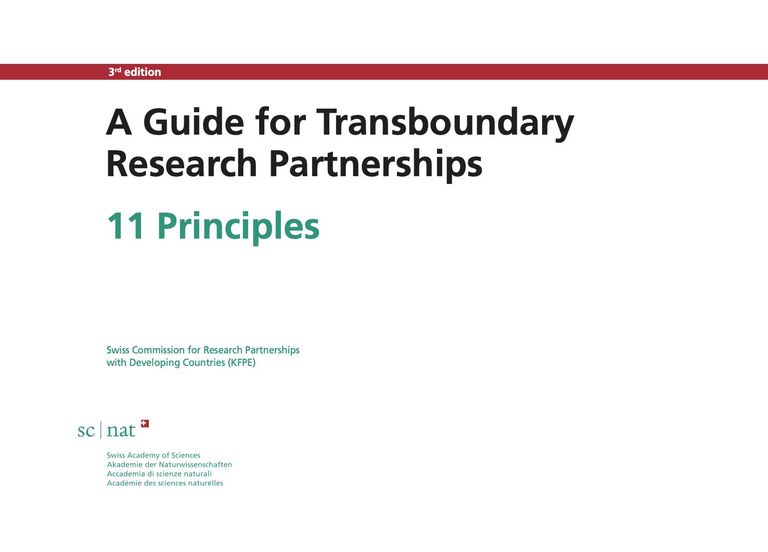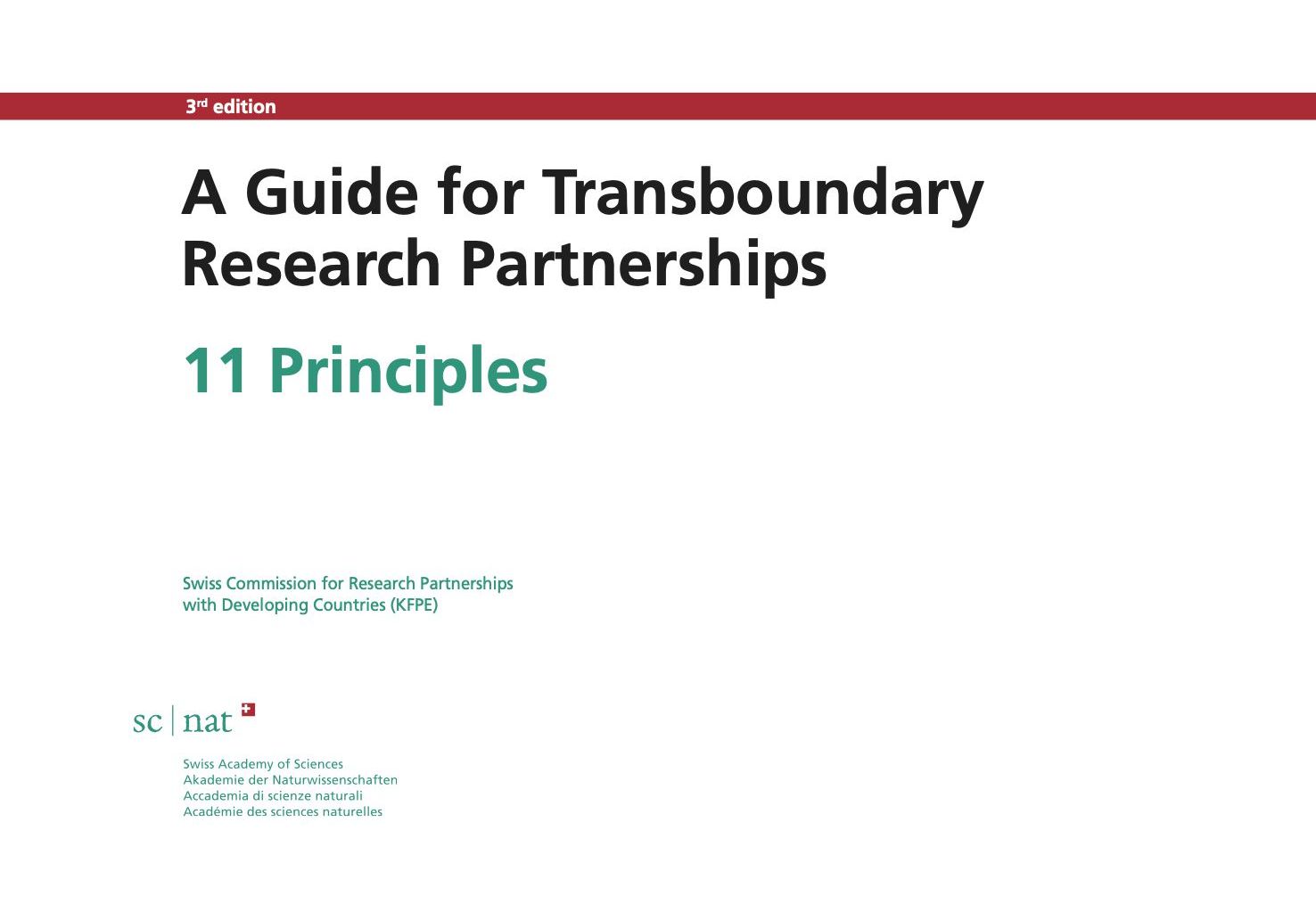Revising the KFPE-Guide for transboundary research partnerships

The KFPE Guide for Transboundary Research Partnerships with Developing Countries - 11 Principles & 7 Questions has been in use in its current form since 2012. Over the last decade, research partnerships have evolved and been discussed from different perspectives. We plan to revise the KFPE Guide based on the experience of using the guide and discussions on equity and efficiency of research collaborations.
For the coming months we plan a series of workshops, exchanges and interviews to discuss current debates on research collaborations and their implications the revision of the KFPE Guide.
- to stay tuned and join us in various online and in-person exchanges throughout the year.
- Do you have any input on what we should consider when revising of the KFPE Guide?
Upcoming events for revising the KFPE Guide
Contact
SCNAT
Commission for Research Partnerships with Developing Countries (KFPE)
House of Academies
PO Box
3001 Bern
Switzerland


